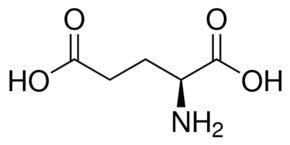Chemistry Student Seminar: Biomineralization of biocompatible metal-organic frameworks
- Date: Fri, 25 Jan 2019, 12:00 pm - 1:00 pm
- Location: MacBeth Lecture Theatre - Badger building
- Cost: FREE
- Contact: Jacqui Hull 8313 5365
- Email: jacqui.hull@adelaide.edu.au

Presenter
Tania Pullin - PhD in Sciences (Chemistry)
Abstract

L-Glutamic Acid
Proteins have gained significant scientific interest across a wide range of disciplines due to their enzymatic activity, selectivity and structural/functional properties. However, proteins can only be used in low temperatures, aqueous solutions, and biological pH. If these conditions are not maintained, this has the potential to denature the protein, resulting in a loss of functionality. This significantly limits the possible applications for proteins.

L-Carnosine (β-Ala-L-His)
One way to increase the stability of proteins is through encapsulation to provide protection against external conditions. Metal-organic frameworks (MOFs) have been shown to do this successfully via the biomimetic mineralisation pathway, wherein the MOF grows a protective coating around the biomolecule.
However, increasing the biocompatibility of the MOF is highly desirable as it could potentially increase attraction between the framework and the encapsulated biomolecule, while also allowing for biological applications. Two biocompatible MOFs with amino acid-derived linkers will be investigated; Zn Glutamate (linker = L-Glutamic Acid) and Zn Carnosine (Linker = β-Ala-L-His). The results of these experiments will be discussed.
